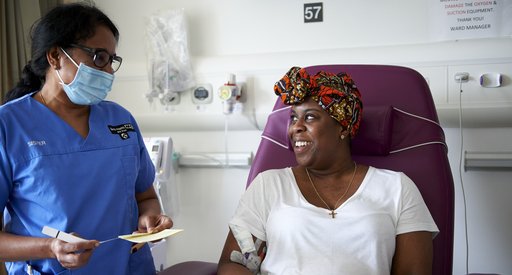Follicular lymphoma
This information is for people diagnosed with follicular lymphoma. We have separate information about other low grade non-Hodgkin lymphomas such as:
- muscosa-associated MALT lymphoma
- mantle cell lymphoma
- Waldenström macroglobulinaemia (WM)
- small lymphocytic lymphoma - read our information about chronic lymphocytic leukaemia (CLL).

What is follicular lymphoma?
Follicular lymphoma is a low grade (slow growing) non-Hodgkin lymphoma that affects white blood cells. Discover more about what this means, and how it affects your blood and lymphatic system.
Follicular lymphoma explained

Causes and symptoms of follicular lymphoma
Scientists don't know exactly what causes follicular lymphoma, but there are some risk factors which could be relevant to you. Find out more about these and the symptoms you may experience.
Read about symptoms and risk factors

Diagnosis and staging
Tests to diagnose and monitor follicular lymphoma include lymph node biopsies, blood tests and scans. Read more about what to expect, and find out how doctors stage the disease.
What tests will I have?

Prognosis for follicular lymphoma
We have some information about things that can affect the future, but remember your own prognosis is personal to you. Your hospital team will be able to tell you more about your individual situation.
The general outlook

Treatment and side effects
Find out more about the treatment you may have for follicular lymphoma, and any side effects you might experience. We've also got information on what to expect if you have a relapse, refractory disease or transformed lymphoma.
About treatment

Blood cancer stories
Read stories from people with follicular lymphoma and other blood cancers. Topics include coping with diagnosis, treatment, side effects, work, finances, and the mental and emotional impact of blood cancer.
Real stories
This information about follicular lymphoma is accredited with the PIF TICK, the UK's only quality mark for trusted health information.
Last full review April 2025. Next full review due April 2028. We may make factual updates to the information between reviews.
We would like to thank Consultant Haematologists Dr Pam McKay and Dr Jin-Sup Shin for checking the clinical accuracy of this information, and Clinical Nurse Specialist Samantha Darby for her guidance and support. Thank you also to Sarah, Sue, Malcolm, Allison, and Jacqueline for supporting this project and sharing their experience of living with follicular lymphoma.
